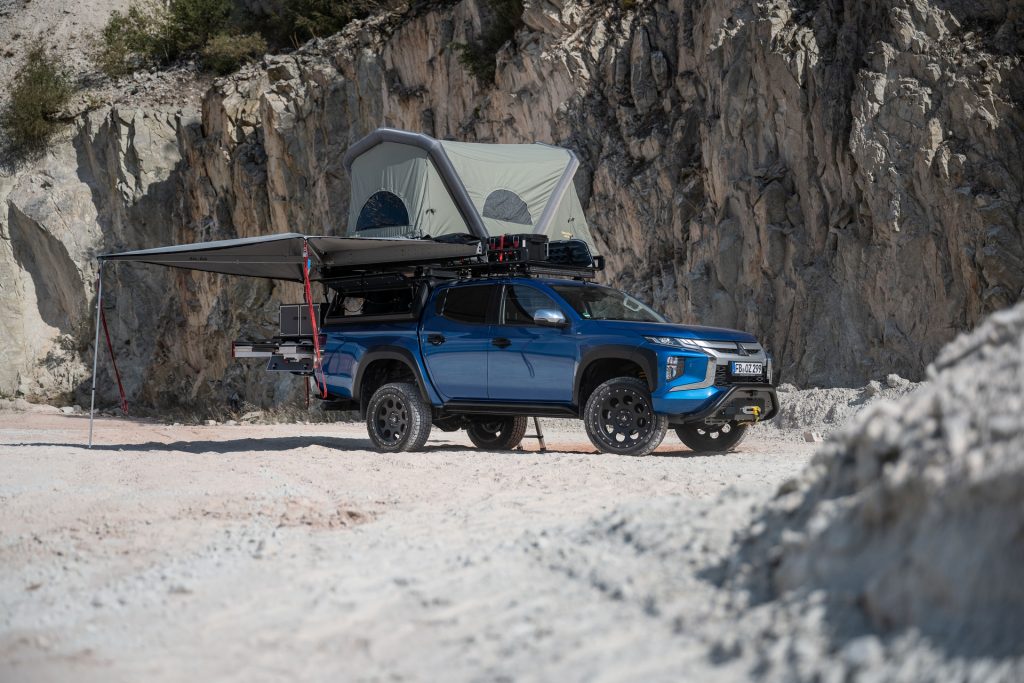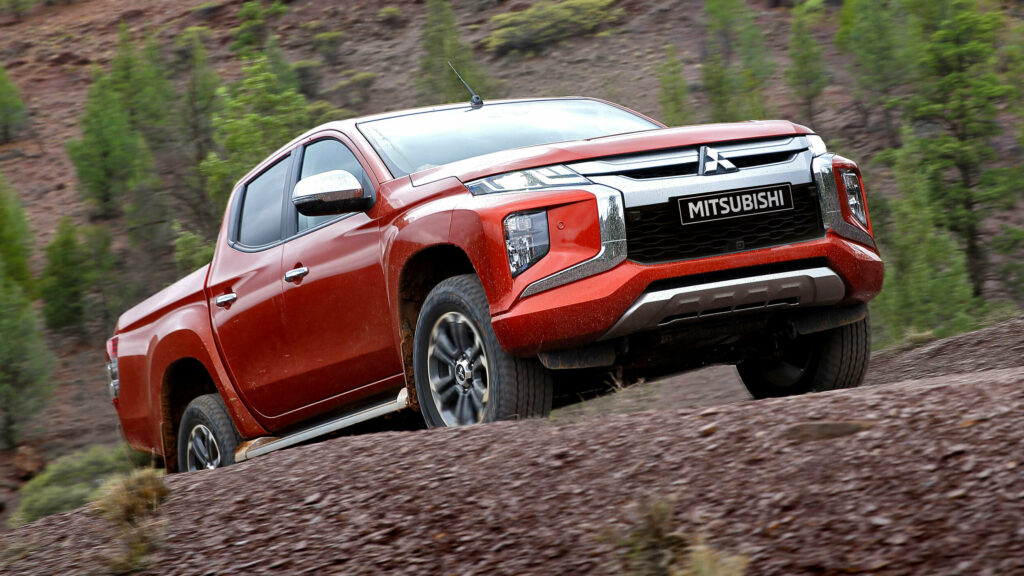Mitsubishi has expressed interest in launching a pickup truck in the United States, although there don’t appear to be any imminent plans for such a move.
Given how massive the pickup truck market is in the United States, it only makes sense that the Japanese automaker likes the idea of capturing part of that pie. It has plenty of expertise through the sale of the Triton / L200 in overseas markets. While the Chicken Tax would stop Mitsubishi from simply importing the Triton in the U.S., that doesn’t mean the idea of selling a pickup locally is dead in the water.
In fact, during a recent interview with The Drive, Mitsubishi’s director for product planning in North America, Cason Grover, acknowledged such a move is possible.
Driven: 2019 Mitsubishi Triton Makes Off-Roading And Hauling Comfortable

“It’s another one of those things we want to try to figure out,” he said. “We’d love to be able to do it. It’s an area we’re certainly interested in because we have a lot of global success. We have history in the U.S. as well.”
“At the end of the day, we don’t have U.S. manufacturing right now, and fundamentally the Chicken Tax is [an obstacle to importing pickup trucks],” he added. “You can’t just wedge that [global Triton] into somebody else’s plant over [here]. So anything we would do – and this is just hypothetical – we’d likely have to go to an alliance partner that does build [one].”
Fortunately for Mitsubishi, its alliance partner Nissan currently builds the Frontier in Mississippi. While Mitsubishi could tap Nissan on the shoulder to build a rebodied variant of the Frontier, Grover noted that the market opened up by the new Ford Maverick is intriguing.
“The [Ford] Ranger, the old Ranger, that was much smaller, had so much volume and was around so long,” he acknowledged. “The Maverick really almost [does] what the Ranger used to do, being affordable.”
While the thought of a new pickup truck entering the U.S. market will excite enthusiasts, Grover warned that there are no immediate plans for such a model.
“It’s a no-future-plan-to-announce [situation], but we certainly… we noticed, put it that way. And we’ve got history.”







